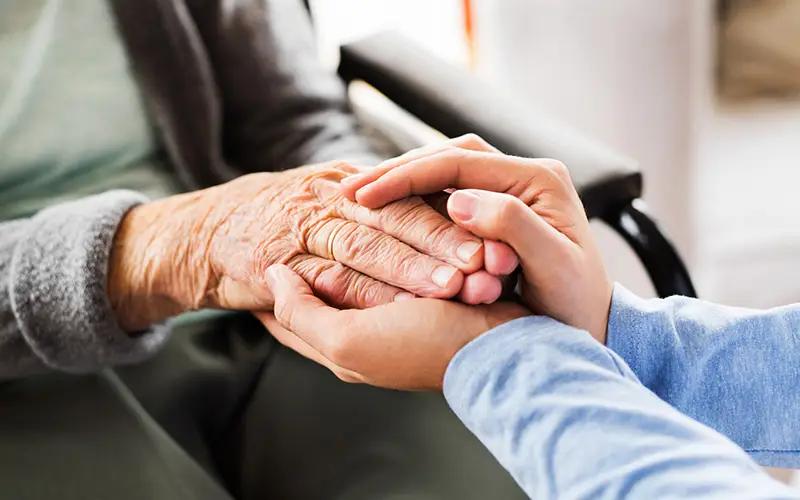
Published
10/01/2025, 10:29Today, October 1, many countries celebrate the International Day of Older Persons. The date was chosen for a reason: it is often said that old age is a “golden time,” and autumn is also known as the golden season. Thus, it was decided to dedicate a special day to the older generation in the heart of autumn. Akchabar decided to find out how those who once contributed to the country’s development are living today and how the state cares for them.
On the eve of this day, a journalist from Akchabar, together with social workers from the Social Development Department of the Sverdlov district in Bishkek, visited some of their beneficiaries at home.
In Bishkek, five days a week, elderly people living alone who are registered with social protection offices can receive hot lunches. Currently, the district staff consists of 21 social workers, of whom 7 assist senior residents. Each worker is responsible for 16–17 people. Not everyone stays long in the job — the salary is only 16,000 KGS, and the work is far from easy.
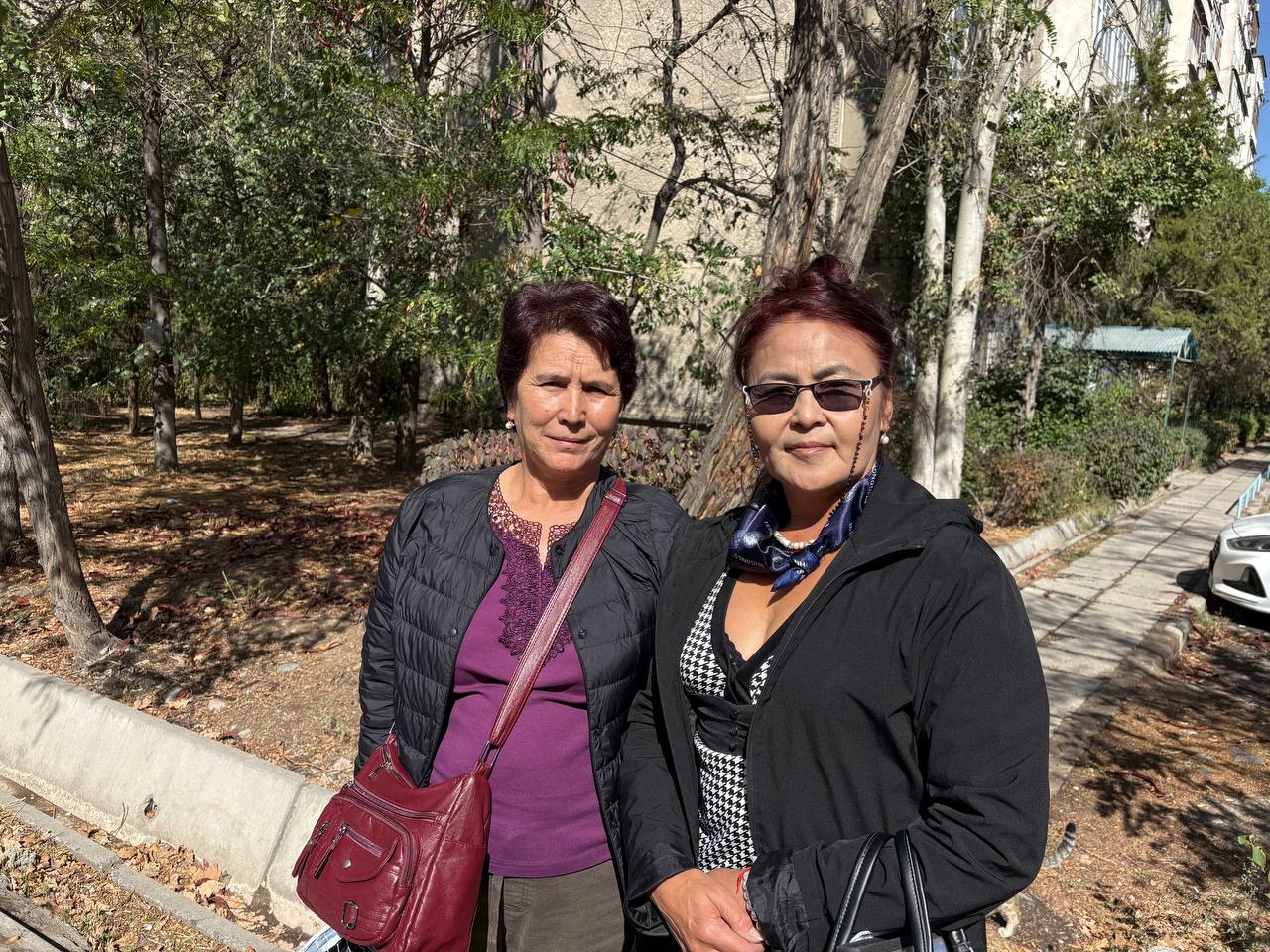
In the canteen of the municipal administration of Sverdlov district in Bishkek, our acquaintance with social workers Danakhan Ulukahunova and Aygul Kolbaeva began. They, along with their colleagues, were picking up hot meals for their elderly residents and preparing to set off — each carrying 10–12 containers of food in two heavy bags. On the day of my visit, they were serving mastava soup and navy-style pasta. Usually, the women (all social workers, by the way, are female) head to the bus stop and travel to their respective districts to visit their elderly residents. We set off to the “Alamedin-1” neighborhood, where they have several residents to visit.
Aigul Dokturovna has been working as a social worker for eight years. On the way, she buys flatbreads for Antonina Vasilievna (author’s note: the names of all residents have been changed at their request). Social workers figure out every day what to pick up along the way, and the grandmothers pay for the purchases themselves. This is what home delivery looks like: from groceries to medicines and diapers.
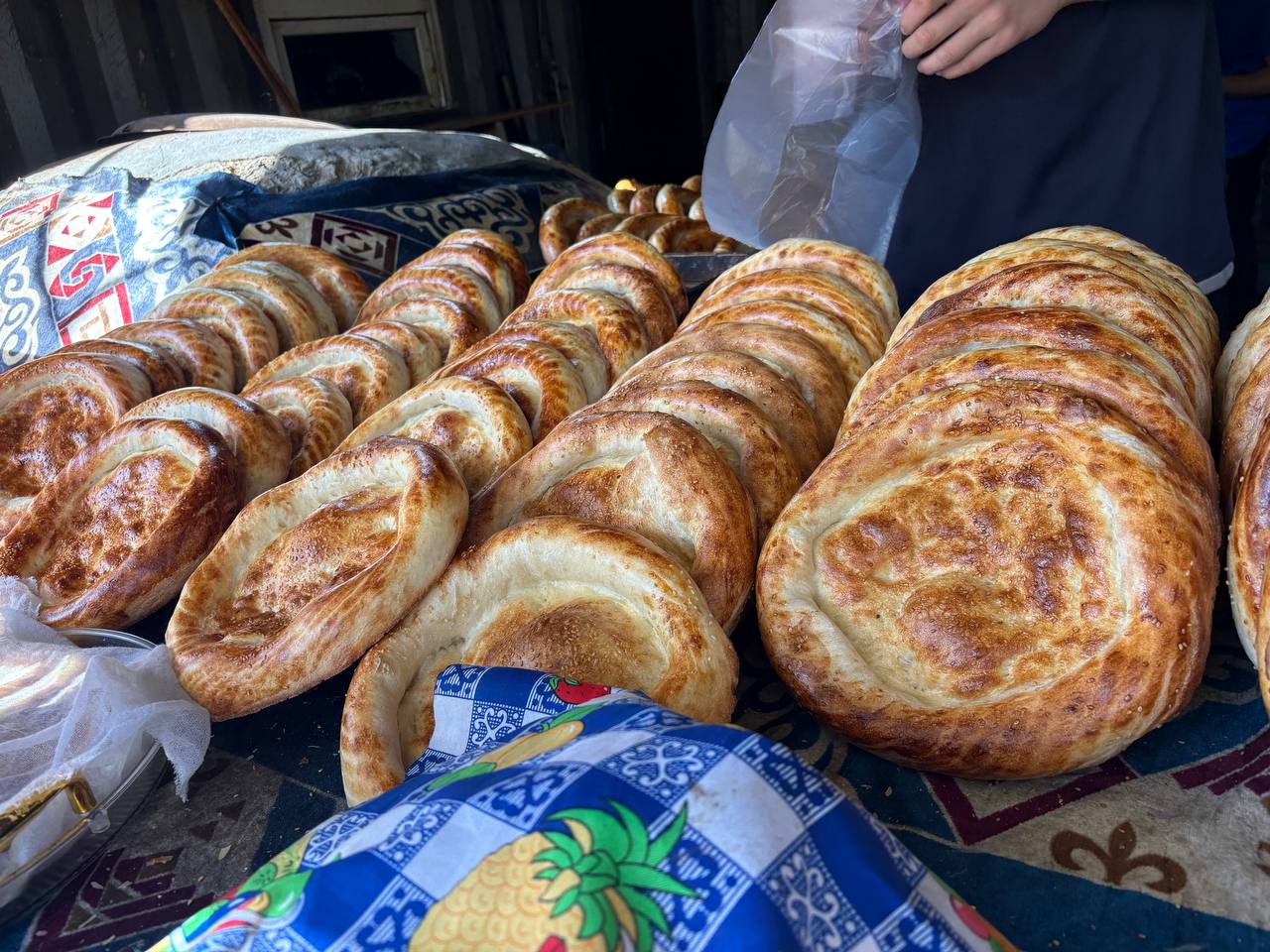
"Please choose a lighter flatbread, her stomach hurts," — the woman asks the tandyr baker.
At the store, while buying two liters of kefir, she laments that dairy products have risen in price again. Most shoppers barely notice, but for the elderly, it hits hard — they have to explain why they have so little change left.
Aigul keeps the keys to the apartments of those considered bedridden, so she can enter without disturbing the residents. Antonina Vasilievna is one of them. But she cannot stay idle in bed — she greets us from her wheelchair, which she has learned to maneuver from the kitchen to the room.
“Oh, but my place isn’t tidy,” — the grandmother says with a sly smile.
The one-room apartment is spotless. The elderly resident clearly takes care of herself — her bangs are neatly set with curlers, the bed is made, and on the kitchen table, tomatoes and apples are arranged in neat rows.
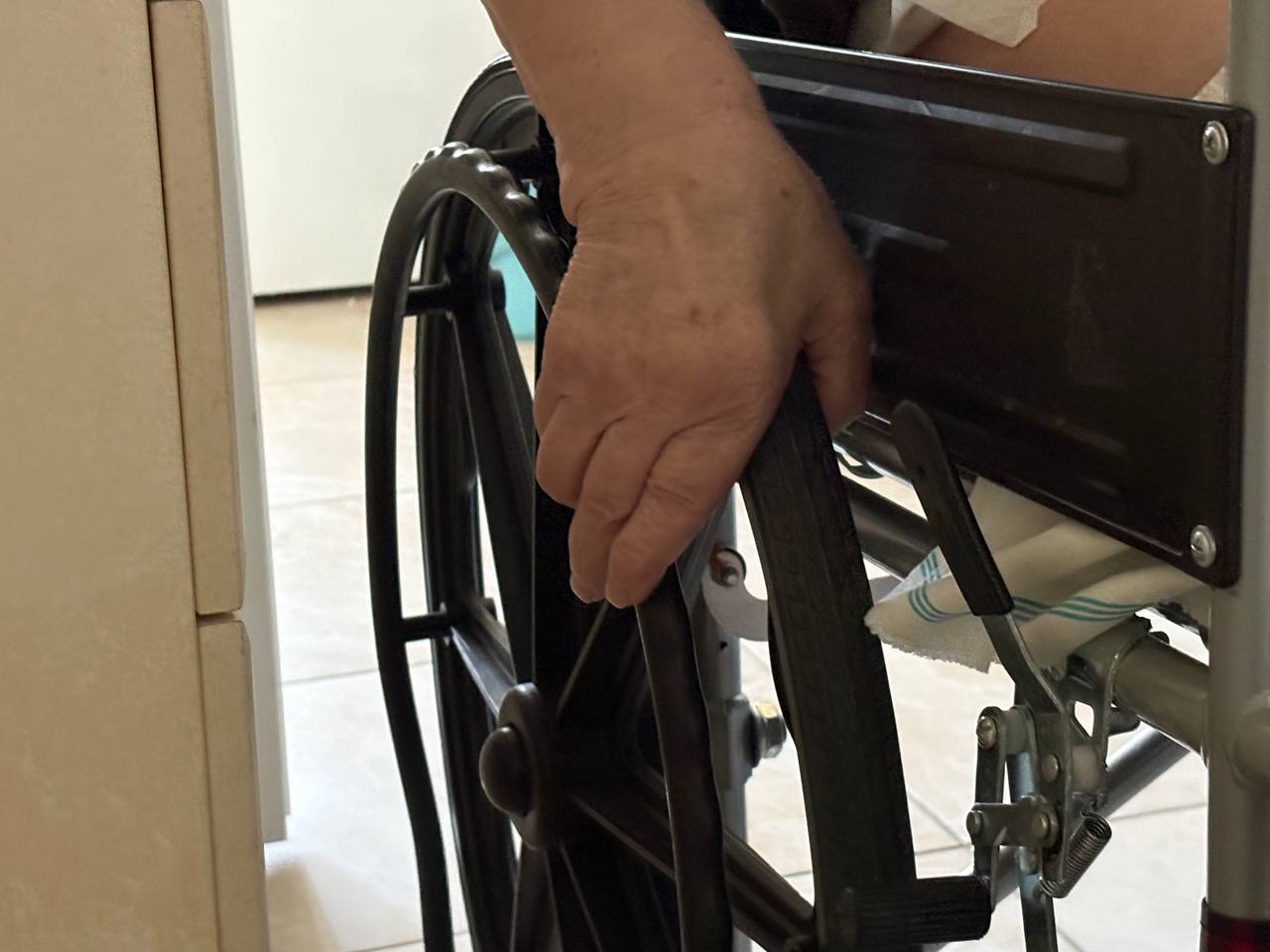
Her pension is enviable to many — just over 18,000 KGS. But a single pack of diapers costs 3,000 KGS, and several packs are needed each month. On top of that, she must cover utility bills, medicines (which are not cheap), groceries, and cleaning supplies. How can one make it all stretch? She has no choice but to keep a strict record of every expense.
“I couldn’t even get out of bed before, and now I can move around the apartment and cook for myself. Just the other day I made eggplant caviar. I have a hernia, had surgery, and still can’t stand firmly on my feet — they say I need to exercise and do some physiotherapy. Aigul brings me my meals, and I tell her that I can actually cook myself, so she should use this month to help those who really can’t get up,” — she says.
The resident shows us her refrigerator and explains how conveniently it is placed — she can easily reach all the items.
“Tomorrow, please bring about one and a half kilos of tomatoes, like last time, not soft — I really liked them. And get some potatoes too,” — she says as we say goodbye.
From there, we head to Danakhan Toktomamatovna’s elderly resident — Anna Fedorovna, who worked as an accountant for many years and now expertly solves crossword puzzles while listening to the news on the radio. Music drifts from the open door.
“I love listening to ‘Retro FM’; they play the songs of our youth. But I’ve lost the frequency, and now I keep turning the dial and just can’t seem to find it,” — greets the apartment’s resident.
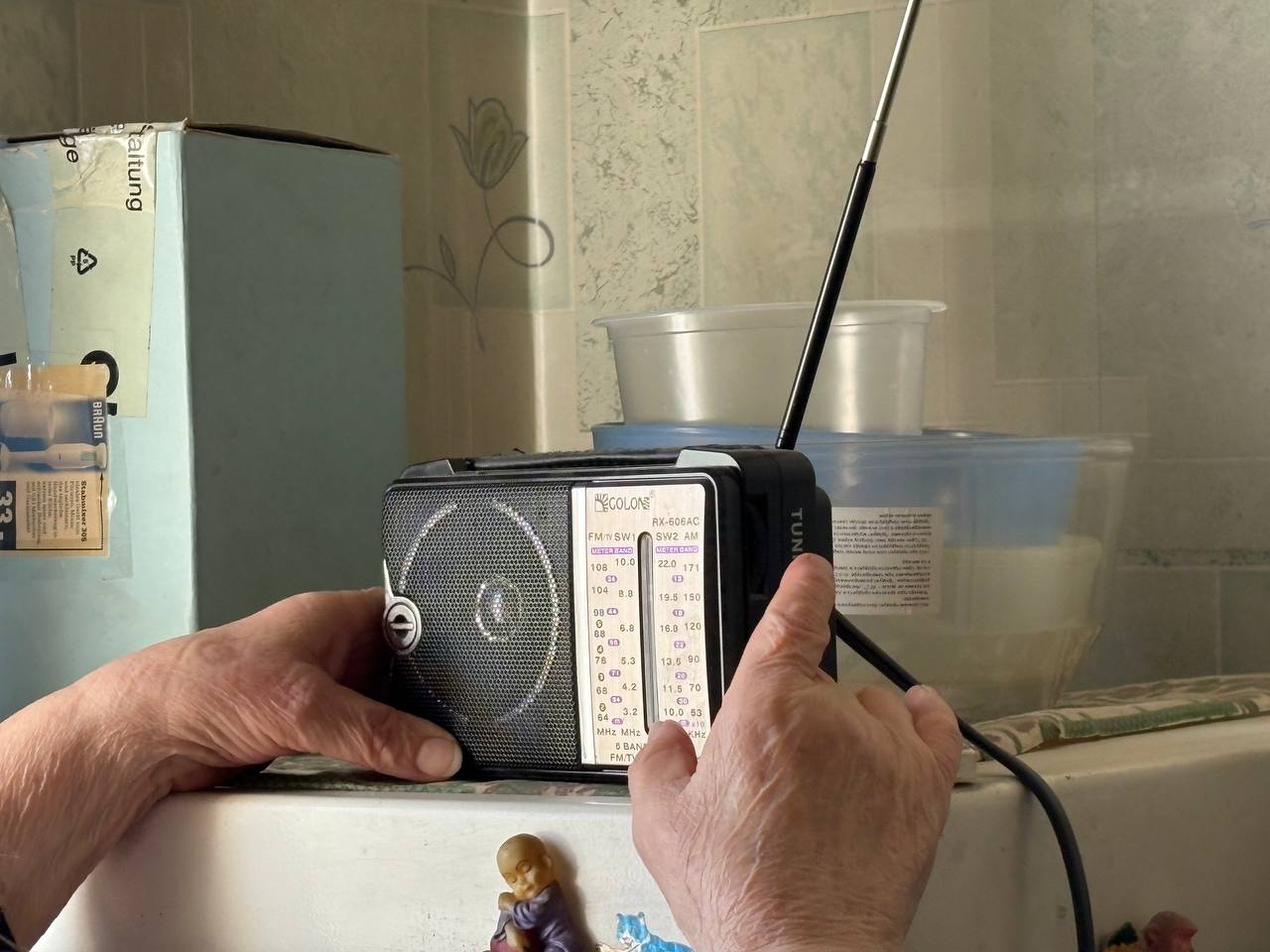
Anna Fedorovna’s only daughter lives with her family in Germany. Both she and her husband are deaf, and it was difficult for them to settle in Bishkek and find work, so they moved to Europe. They help their mother as much as they can and visit her when possible, though not very often. Most of the time, the elderly woman lives alone. In recent years, her eyesight has deteriorated, making it difficult for her to leave the house on her own. That’s why she looks forward to the social worker’s visits, so they can take a walk together to the nearby store.
“I don’t get bored. I solve crosswords and sort through my things. I used to go to the ADRA charity center where they had fitness classes. We also used to gather for various events and activities, and just socialize. But that was before the quarantine, and since then they haven’t resumed the sessions,” — she says.
Anna Fedorovna has poor eyesight; she underwent cataract surgery, but it hasn’t helped much. Cooking by herself is difficult and even risky — she might forget to turn off the stove simply because she cannot see properly. That’s why the social worker regularly includes her on the list and delivers hot meals to her.
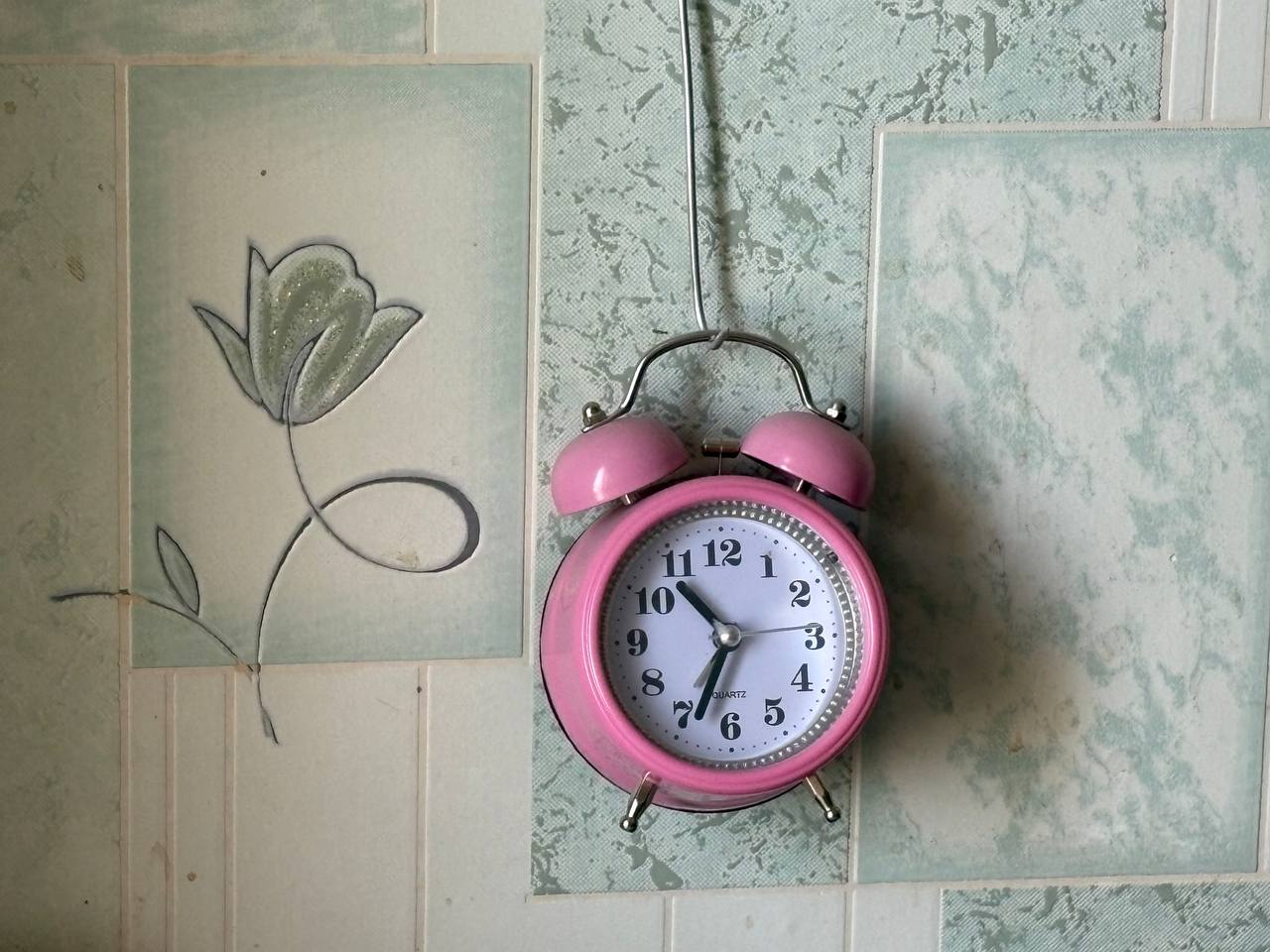
“Have you made an appointment with the doctor? When you do, let me know. We’ll go together,” — says Dana, explaining that it’s necessary to see an ophthalmologist. “We even went together for the surgery; the grandmother wasn’t worried — that’s what matters most — but I was anxious while waiting for her in the corridor.”
Danakhan Toktomamatovna has been working as a social worker for 36 years and has had dozens of elderly residents under her care during this time. Yet one — grandmother Dusya — remains especially dear to her. She cared for her for many years, bringing medicines and groceries, helping with daily chores, but in return received much more — life advice and always a kind word.
The next person under Aigul’s care is a young woman. The apartment door is open, she has been waiting for the social worker, and at the entrance stands a wheelchair. On the couch sits a 38-year-old woman. Among the usual grey-haired elderly residents, seeing a young, attractive woman is unexpected, but unfortunately, reality is such that even in youth one can lose mobility and require constant assistance. This is the case with Aisuluu. For the past ten years, her entire life has been confined to four walls, with rare trips outside — only in urgent situations, like an emergency hospital visit.
The woman receives a disability pension — just over five thousand soms — and most of it goes on painkillers. That’s why the free meals are always a timely help. Moving around the apartment is extremely difficult for her, often requiring crawling, and cooking by herself is nearly impossible.
"Aigulechka, the floors need to be washed," — she asks the social worker.
Aisuluu sits on the sofa with her laptop, saying she spends her days watching series, particularly enjoying Korean dramas. She doesn’t want to talk much about what happened to her, giving a brief answer: “an accident.” Spotting the containers of food, she smiles: “The macaroni is cooked really well!”
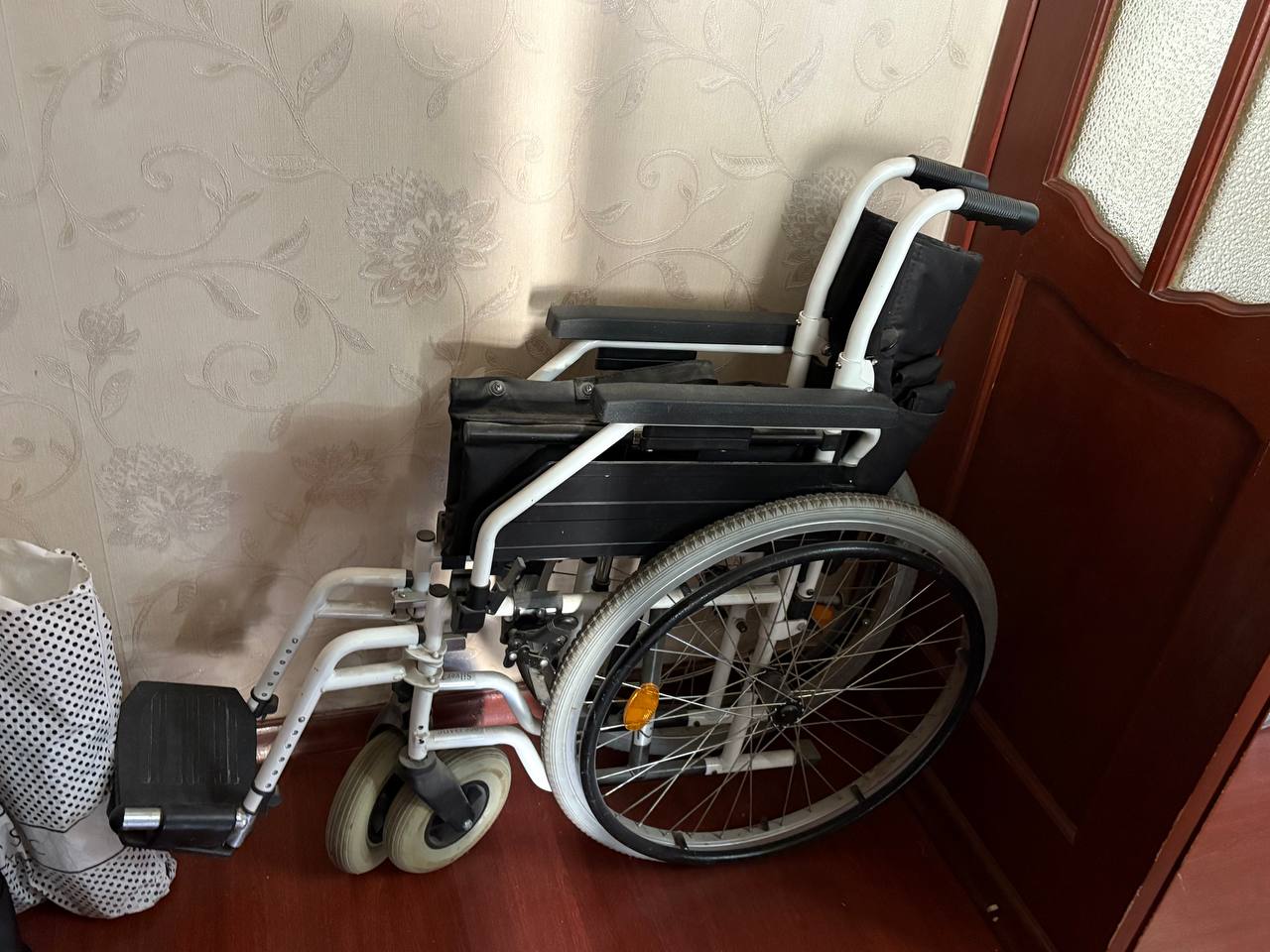
“Marina Rakhimovna, my dear mother, good afternoon! How is your health?” — Danakhan Ulukakhunova greets the next elderly woman from the doorstep.
On the table, there’s a small pyramid of medicine boxes and a blood pressure monitor. Danakhan checks how many pills are left and what still needs to be purchased.
By the way, she worked for many years at the Olympic Reserve School, nurturing generation after generation of future champions who brought fame to the country on the world stage. She taught children Russian language and literature, and in the process, she learned Kyrgyz alongside them. Her former students still remember their teacher and visit her, but, as is customary, only on holidays; on weekdays, she is completely alone. Her husband, brother, and only son have all passed away.
“My husband and I lived for many years in Issyk-Kul and worked our whole lives. We managed to save a small sum for old age. And then recently, scammers tricked me. I had heard so much about them, yet I still fell for it. They took all our savings—200,000 KGS,” — the elderly woman laments.
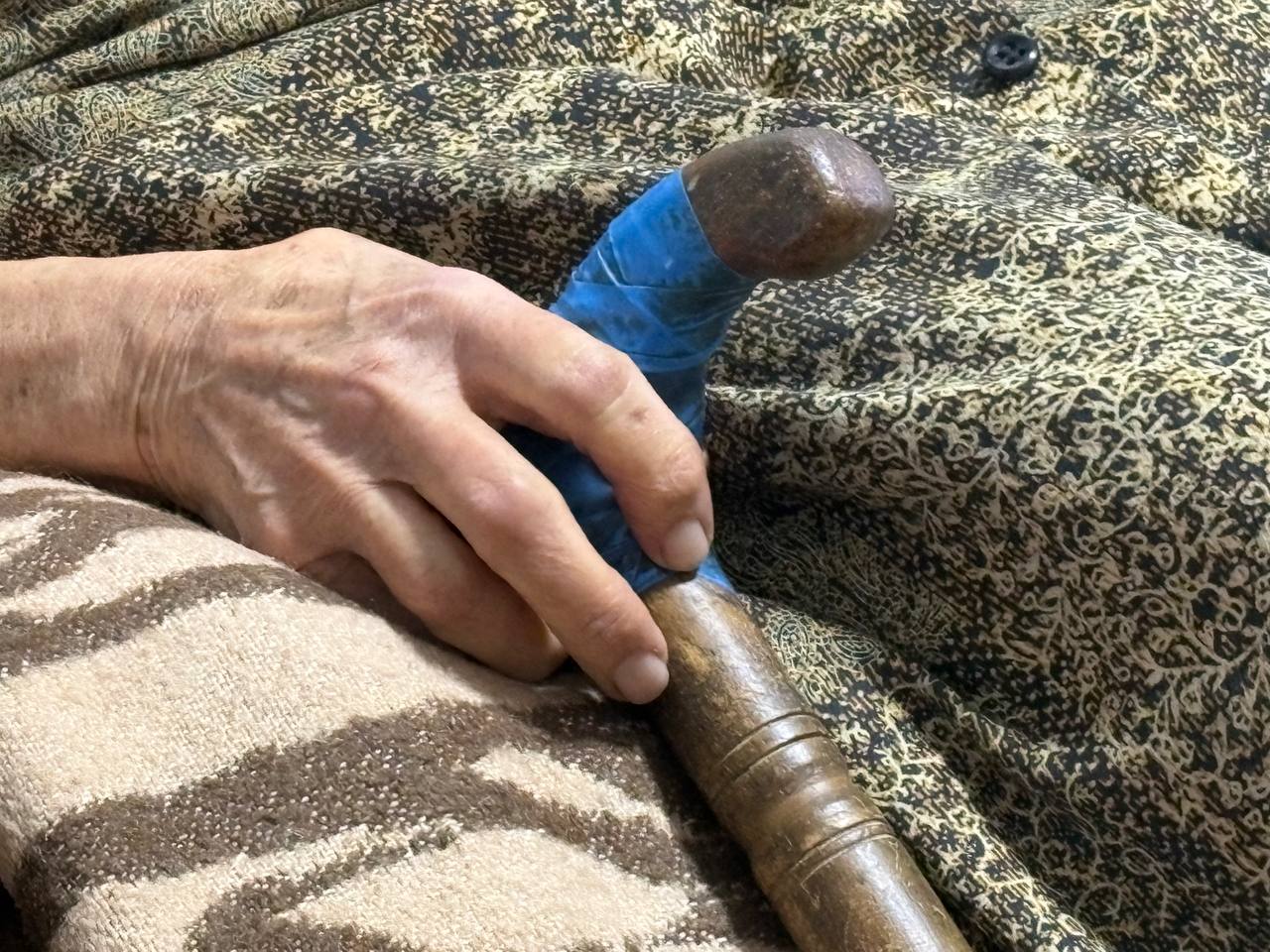
In the room where we are talking, a TV is on in the background; the lady was watching the news. She always keeps up with current events and asks to have newspapers and magazines bought for her.
She speaks very warmly about her social worker and, seeing her off at the door, even forbids her from thinking about leaving the job.
“While I’m alive, you’ll keep working!” — she laughs.
Meanwhile, Danakhan Toktomamatovna is already hurrying to the bus stop — she has to go to the other side of the city, where her remaining elderly residents are waiting.


